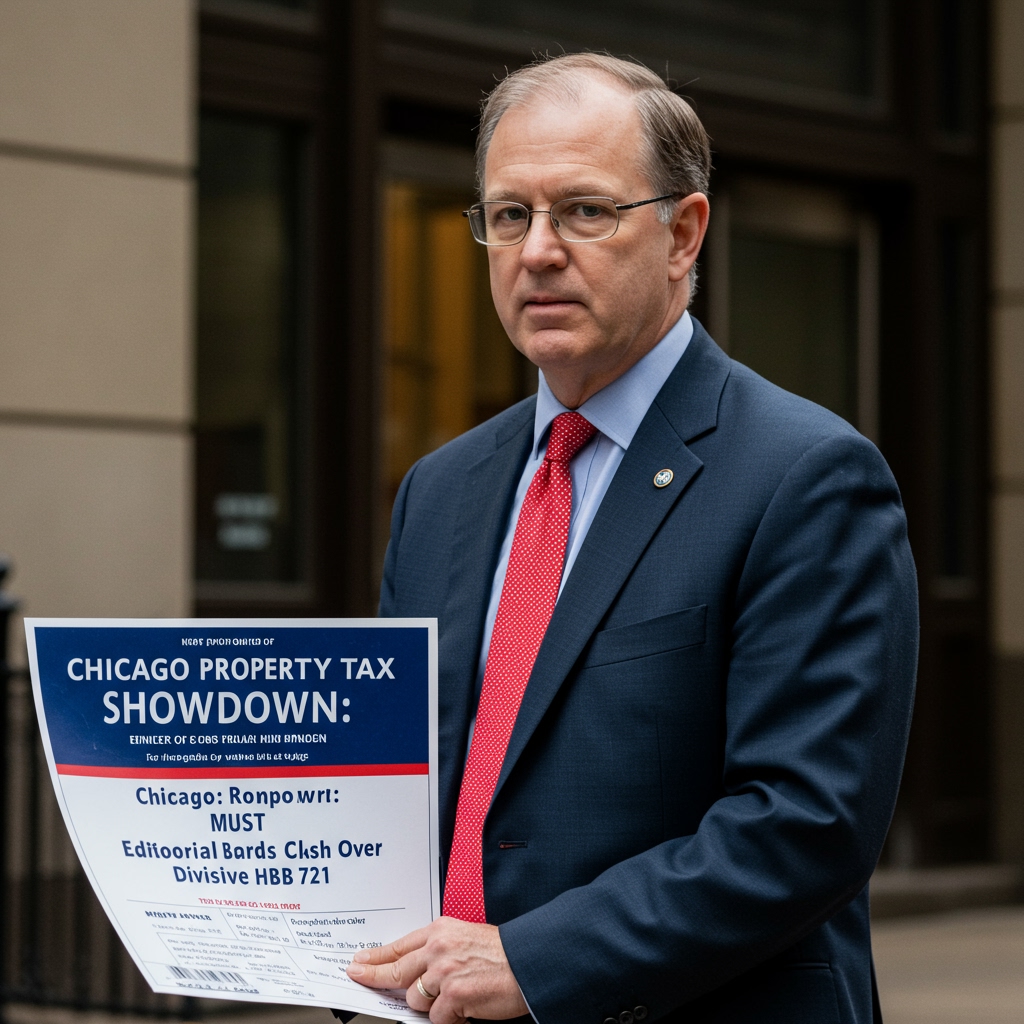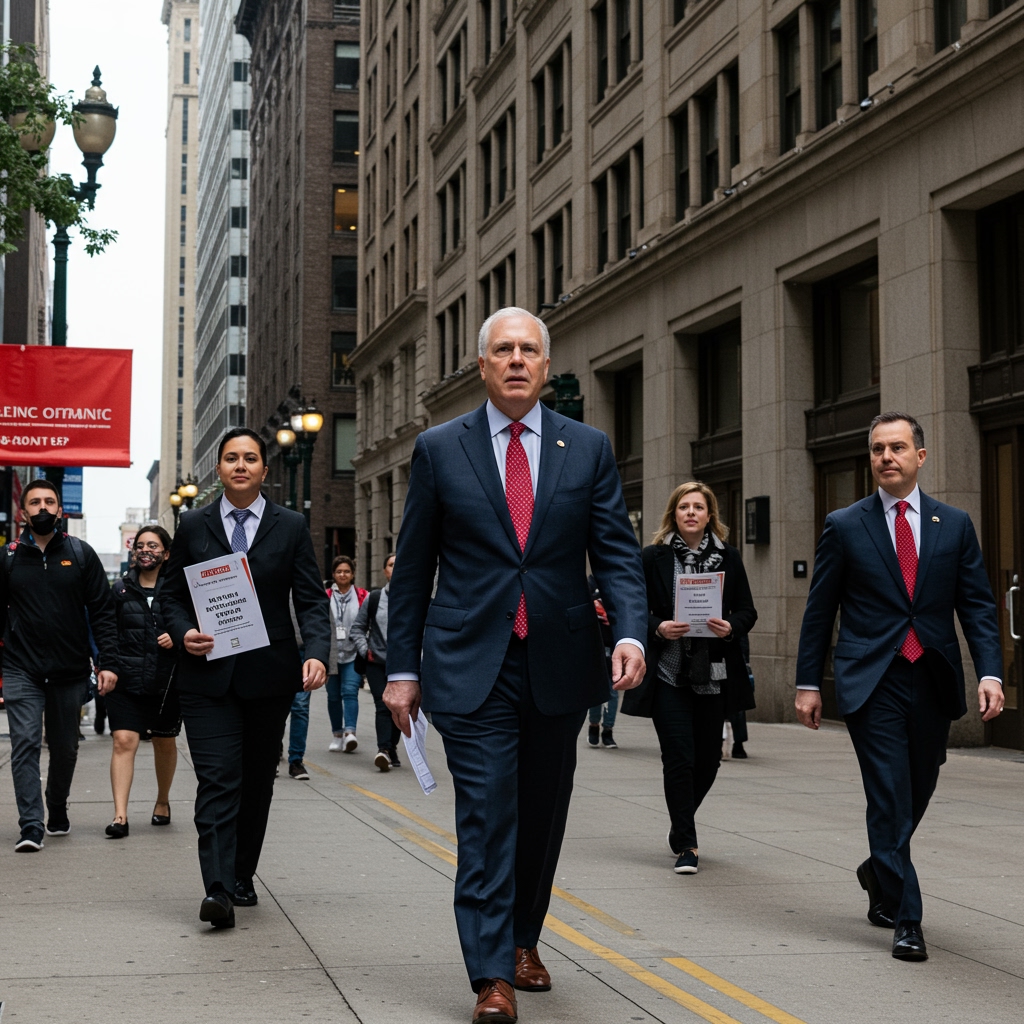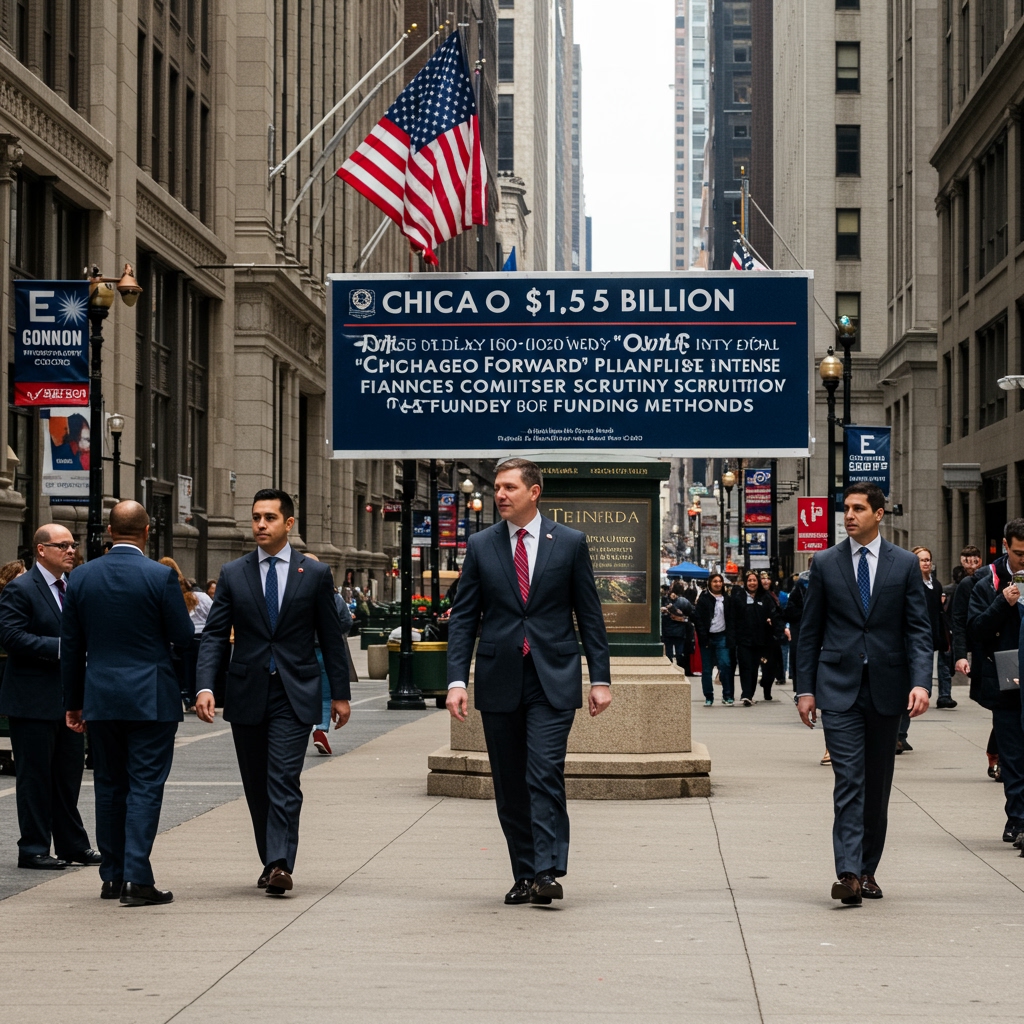CHICAGO, IL – On May 16th, the Chicago City Council’s Finance Committee convened for an extensive and probing hearing dedicated to scrutinizing the financial underpinnings of the proposed $1.5 billion ‘Chicago Forward’ infrastructure plan. This ambitious initiative, envisioned to address critical upgrades and improvements across the city’s aging infrastructure network, hinges on securing substantial funding, the methods for which were the primary focus of the day’s rigorous discussions.
The meeting, held at City Hall, saw City Budget Director [Simulated Name] and other key city financial officials appear before the committee. Their task was to detail the administration’s preferred financing strategy, which prominently features a potential reliance on a sales tax increase as a significant revenue stream. However, this approach met with considerable skepticism and tough questioning from aldermen comprising the Finance Committee.
Aldermen voiced deep concerns regarding the potential financial burdens placed upon Chicago residents and businesses by a sales tax hike. Questions centered on the regressivity of such a tax, its potential impact on consumer spending, and whether it represents the most equitable way to fund long-term infrastructure investments. Furthermore, significant attention was paid to the debt implications associated with the ‘Chicago Forward’ plan, regardless of the primary funding source. Committee members pressed officials on the long-term fiscal health of the city, the capacity to take on additional debt, and how borrowing might affect Chicago’s bond rating and future borrowing costs.
Officials presented models and projections outlining how a sales tax increase could generate the necessary revenue over time, arguing for its stability compared to other potential sources. They also attempted to assuage fears regarding debt by detailing proposed repayment schedules and mechanisms intended to manage the city’s overall debt portfolio responsibly. However, aldermen remained persistent, pushing for clarity on worst-case scenarios and the flexibility of the plan’s funding structure in the face of economic fluctuations.
The hearing was not limited to evaluating the administration’s initial proposal. Discussions actively explored alternative financing options brought forth by committee members and financial analysts. One prominent alternative discussed was the concept of dedicated municipal bond issues specifically earmarked for components of the ‘Chicago Forward’ plan. Proponents argued that issuing bonds for distinct projects, such as transit upgrades or water main repairs, could offer transparency to taxpayers on how borrowed funds are being used and potentially attract specific types of investors interested in infrastructure projects. This approach could also allow for more targeted borrowing based on project readiness and lifecycle.
Another alternative explored involved revisiting phased implementation strategies for the $1.5 billion plan. Instead of attempting to fund the entire package concurrently through a single mechanism like a significant sales tax increase or large general obligation bond issue, a phased approach would break the plan into smaller, manageable stages. This could allow the city to leverage different funding sources for different phases, align spending with economic cycles, and potentially reduce the immediate need for a large, potentially unpopular, tax increase. It would also provide flexibility to adjust the plan based on evolving needs or financial conditions.
Aldermen questioned officials extensively on the feasibility and potential benefits and drawbacks of these alternatives compared to the proposed sales tax model. They sought to understand the timeline differences, administrative complexities, and overall cost-effectiveness of dedicated bonds and phased implementation. Officials acknowledged the potential merits of these strategies but also highlighted potential challenges, such as the administrative overhead of managing multiple bond issues or the risk of project costs escalating over a longer, phased timeline.
The rigorous questioning and detailed examination underscored the Finance Committee’s commitment to thoroughly vetting the ‘Chicago Forward’ plan’s financial structure before it progresses. Committee Chair [Simulated Name] concluded the day’s session by indicating that the hearing, extensive as it was, represented only the initial phase of the committee’s review. The Chair stated that further sessions are definitively necessary to continue evaluating the financial feasibility, potential public impact, and long-term sustainability of the proposed funding streams and the alternatives discussed before any recommendations can be made or action taken to move the $1.5 billion infrastructure plan forward. The committee remains focused on ensuring that the funding strategy ultimately adopted serves the city’s infrastructure needs responsibly while protecting the financial interests of its residents.















